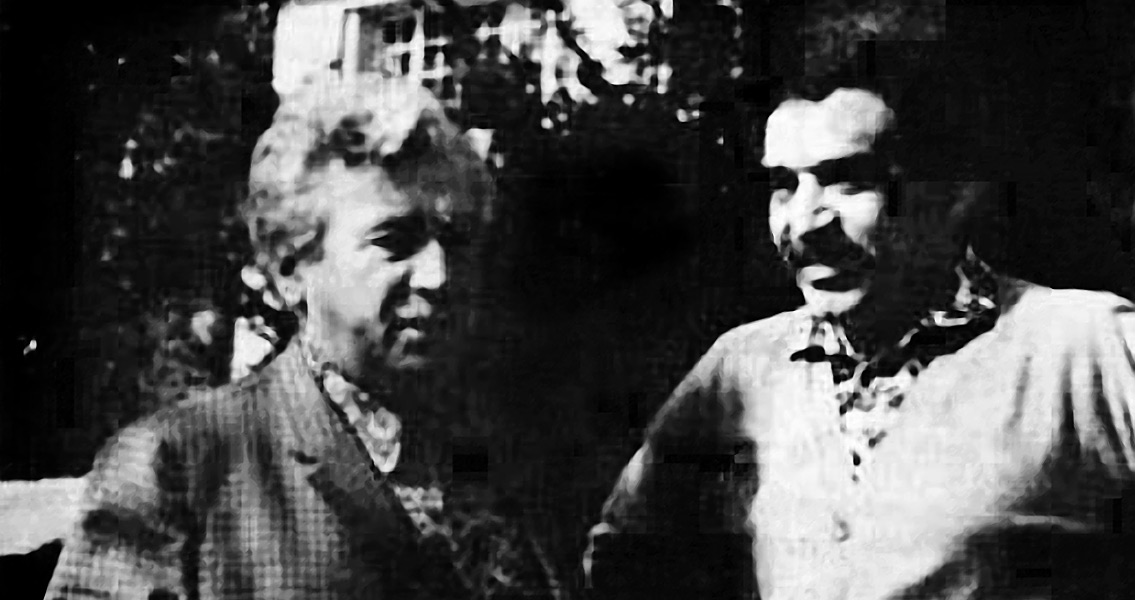<![CDATA[On the 6th March 1928, Gabriel Garcia Marquez was born in Aracataca, Colombia. His distinct, fantastical writing style, as demonstrated in works such as "100 Years of Solitude" and "Love in the Time of Cholera", came to be seen as a foundation of the magical realism genre, influencing countless authors since. Marquez was also a key, sometimes controversial voice in South American culture, reflecting as well as shaping the region's cultural identity. Garcia Marquez was the eldest child in a family of 12 children. His father, Gabriel Elijio García, worked as a telegraph operator, postal clerk and occasionally a pharmacist. Elijio Garcia's low wages meant he could barely afford to support his wife, Luisa Santiaga Márquez, or their large family. Garcia Marquez spent much of his early childhood being raised in the ramshackle house of his grandparents, a setting which sparked his imagination, and influenced his writing in latter life. In the 1940s, Garcia Marquez moved to Bogota to study law and journalism. His time in the capital coincided with the beginnings of one of the most shocking periods in Colombian history, popularly referred to as 'La Violencia'. On April 9th 1948, Jorge Eliécer Gaitán, a popular politician from the Liberal party, was assassinated in broad daylight in the centre of Bogota. The ensuing riots devastated property throughout the country, and the signaled the start of a brutal, long running conflict between Colombia's Conservative and Liberal parties. Modern estimates suggest that in the period between 1946 and 1964, 200,000 people were killed as a result of the violence in Colombia. The stark brutality of the La Violencia would serve as a backdrop of several of Garcia Marquez's novels. In 1967, while living in Mexico, Marquez completed his breakthrough work, "A Hundred Years of Solitude". Although Marquez initially struggled to find a publisher for the book, once it was finally released it went on achieve huge critical and commercial success, being translated into a host of other languages. He would go on to receive the Nobel Prize For Literature in 1982, highlighting the increasingly international audience his distinct style had been accumulating. Of course, there was much more to Garcia Marquez's work than his fantastical novels. As a writing style, magical realism could be viewed as an attempt at escapism, a means to detach oneself from the mundane banality of reality. For Garcia Marquez, the opposite was true, the magic in his stories was intended to be a metaphor for the extremes of life in South America, the colouful diversity and terrifying violence, the extremes of wealth and poverty and the continuation of superstition. In his life as well, Garcia Marquez was politically vocal. In 1959, while working as a journalist in Cuba, Garcia Marquez forged a friendship with Fidel Castro which would last for decades. Garcia Marquez was unequivocal in his support of the Cuban leader, a fact which inevitably made him unpopular among American politicians. It is impossible to summarise the political beliefs of a figure as enigmatic as Garcia Marquez, but his public opposition to Conservative Chilean dictator General Pinochet, combined with his endorsement of Castro, give an insight into the left wing views he held. In his 1982 acceptance speech for the Nobel peace prize, Garcia Marquez made clear his opinions on European meddling in Latin American culture. "(Europeans) insist on measuring us with the yardstick that they use for themselves, forgetting that the ravages of life are not the same for all, and that the quest for our own identity is just as arduous and bloody for us as it was for them." Garcia Marquez is remembered for a number of reasons, pioneering magical realism, his very public friendship with Castro and his outspoken political views. Perhaps the most important thing to acknowledge on the anniversary of his birth however, is that his writings expressed a voice and mythology of South America. His books may have enjoyed international appeal, but as was alluded to in his acceptance speech, they are first and foremost artefacts of a simultaneously beautiful and troubled continent. Image courtesy of Wikimedia commons user: Eadonias/Rosita Filho ]]>
The Birth of Gabriel Garcia Marquez
